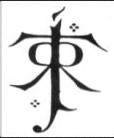Forum
Welcome Guest |
|
|---|---|
 Author Author |
Topic: |
|---|
| Fattybolger |
|
||||||||
| danja_san |
|
||||||||
| atalante_star |
|
||||||||
| Celebrian |
|
||||||||
| vicarcat |
|
||||||||
| Irmo_of_lorien |
|
||||||||
| Dolwen |
|
||||||||
| danja_san |
|
||||||||
| vicarcat |
|
||||||||
| Fattybolger |
|
||||||||
| PotbellyHairyfoot |
|
||||||||
| danja_san |
|
||||||||
| Fattybolger |
|
||||||||
| atalante_star |
|
||||||||
| vicarcat |
|
||||||||
| PotbellyHairyfoot |
|
||||||||
| Fattybolger |
|
||||||||
| Celebrian |
|
||||||||
| pv |
|
||||||||
| Fattybolger |
|
||||||||
| Celebrian |
|
||||||||
| Fattybolger |
|
||||||||
| Strider_is_the_cats_MEOW |
|
||||||||
| danja_san |
|
||||||||
| Fattybolger |
|
||||||||
| Strider_is_the_cats_MEOW |
|
||||||||
| Celebrian |
|
||||||||
| Hercynian |
|
||||||||
| cirdaneth |
|
||||||||
| Members Online |









 Fight, Flight and Tom B. [keep]
Fight, Flight and Tom B. [keep]

 I don't really see it as the elves taking off to Valinor as soon as times get tough. They spent thousands of years fighting a worse evil; Morgoth. The time of the elves is over and they're fading. Men are stronger and more in number by this time and it is time for them to decide the fate of the world.
I don't really see it as the elves taking off to Valinor as soon as times get tough. They spent thousands of years fighting a worse evil; Morgoth. The time of the elves is over and they're fading. Men are stronger and more in number by this time and it is time for them to decide the fate of the world. 



